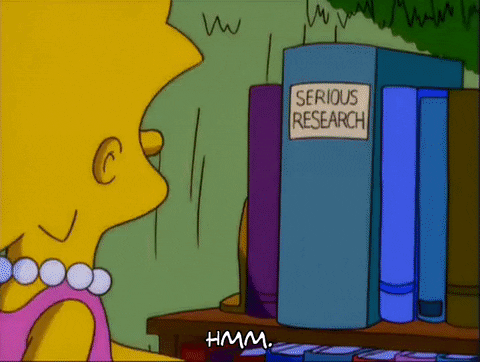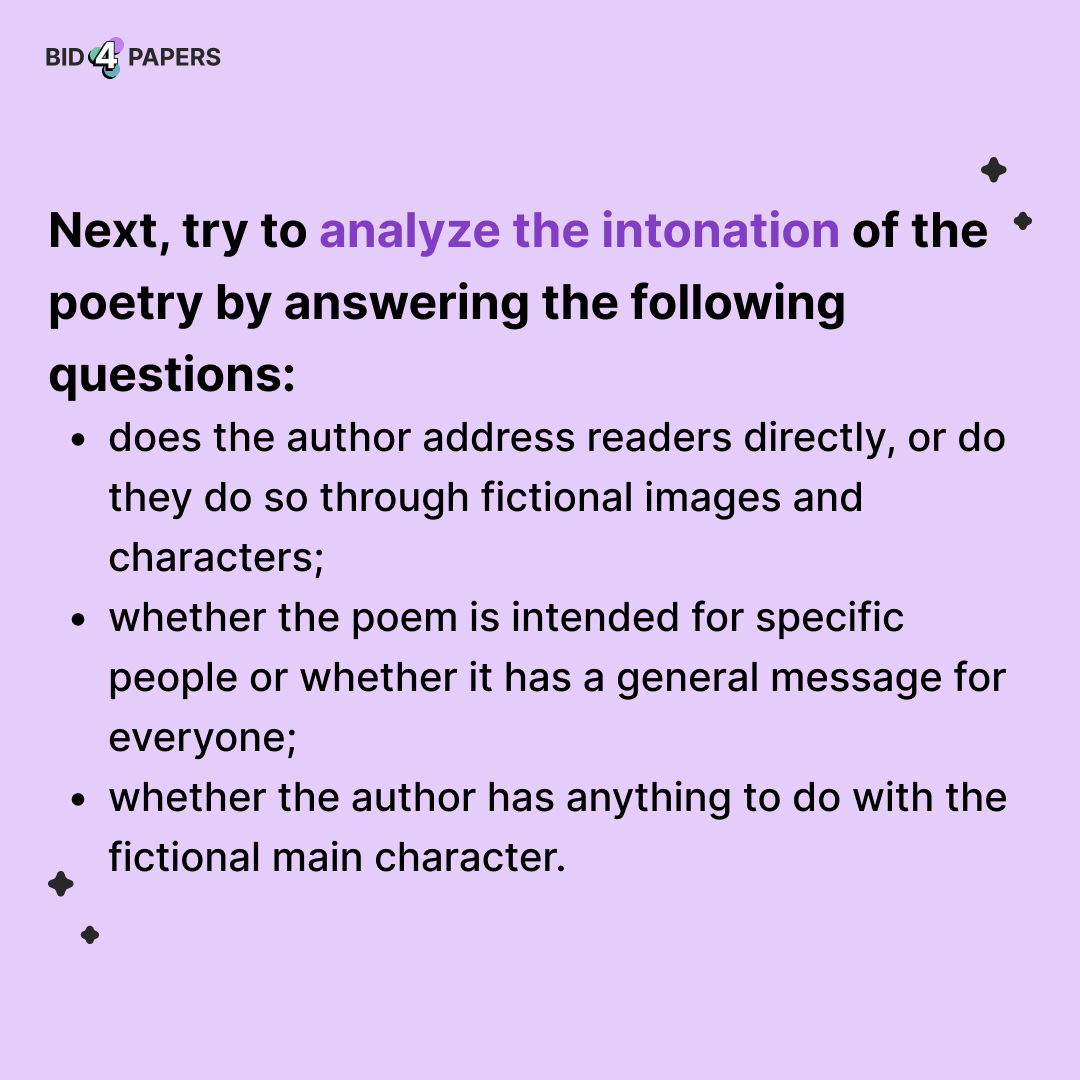
Analyzing Poems in Essays: Outlining, Templates, and Structural Tips
Every poet puts a certain meaning into their work. Literary experts pay special attention to the study of such topics. And writing a poetry analysis paper is an important part of the study. Let’s analyze all the subtleties and tips for writing such an analysis.
Table of Contents:
1. Understanding the Art of Analyzing Poems in Essays
2. Selecting a Topic for Your Poetry Analysis Essay
3. Creating a Poem Analysis Essay Outline
4. How to Analyze a Poem Effectively
5. Utilizing a Poetry Analysis Template
6. Structural Tips for a Strong Essay

Understanding the Art of Analyzing Poems in Essays
Teachers at institutions of higher learning also instruct their students to dive deep into the meaning of poems. This allows them to understand exactly what the author wanted to say, what thoughts to convey to readers. A line-by-line analysis helps to understand the structure of the work, the writing style, and the subject matter.
Analyzing poetry requires a deep understanding of the art form and the images the poet uses. This will allow you to discover hidden meanings that do not lie on the surface.
Repeated reading of a poem does not always yield the expected result. Sometimes you need to take the extra time to study the author’s biography. It should deal with the author’s mood and his position in life. This is reflected in the creative work and significantly affects the enclosed meaning.
Understanding the art of poetry analysis essay includes consideration of the following elements:
- structure. The sequence of the narrative, line breaks, and semantic pauses all affect the process of perception;
- rhythm. The author places accents in a certain way to hint to readers the importance of a particular line;
- theme. One must consider the imagery used in the work to get closer to understanding the meaning and theme.

One must be able to read between the lines to see hidden metaphors and analyze the text more deeply. After reading a poem for the first time, it is common to get the impression that the author is just talking about the world around him.
Perhaps he was looking out the window, and what he saw motivated him to write the poetry. But after careful research, it becomes clear that there is more behind the simple landscape description.
Writing essays on such topics is often more challenging than conducting a scholarly research paper. That’s why students often turn to the authors of Bid4Papers for paper writing help.
If you have enough free time, you can thoroughly study the chosen topic and write a high-quality essay. The teacher will appreciate it and become important in disclosing your analytical potential.
Selecting a Topic for Your Poetry Analysis Essay
Poetry has many directions, forms, and genres. Being immersed in the fascinating world of diversity discourages many students who need to do research. However, it allows you to expand your creativity and develop your poetry-writing skills. If you want to develop in this field, it is worth paying special attention to the choice of topic for analyzing poetry essay. Here are some recommendations that will help you:
- it is worth understanding that the discipline is quite broad, and there may be many controversial points in the future. Therefore, it is better not to generalize and choose the work of a particular poet. And it is better to dwell on a certain period of his biography. So it will be easier to understand the context and find the hidden meaning in the poems;
- do not forget about your interest in the topic. Otherwise, writing an essay about poetry will turn into a boring process, the result of which will not be entirely satisfactory;
- ask your supervisor for advice. If you can’t decide, the professor will share useful information and suggest some ideas.

Some students find writing essays on general topics unrelated to a particular author or poem much easier. You can find numerous poetry analysis essay examples online that will be a source of information. We also recommend that you pay attention to the following potential topics:
- The Role of Nature in Romantic Poetry. You can choose several poems from the Romantic era and analyze how they depict natural phenomena and what images the authors use to convey their experiences.
- Social and political commentary in poetry. Many poets use artwork to make a point about the current situation in society. They talk about political issues and criticize specific people for their wrong decisions. Special techniques and hidden context can be used to do this.
- Love and relationships in poetry. You should choose several thematic poems from different periods to analyze how emotions are conveyed. Analyze the author’s metaphors that help you better understand romantic relationships.
- Poetic techniques in the works of different authors. Quite an interesting idea for writing an essay. You should analyze the images and techniques that contribute to the effect.
- Wars and international conflicts. To write essays analyzing poems, it is necessary to select at least five works devoted to this difficult topic.
- Evolution of Poetry. Quite an extensive study that will help you reach your full potential. Analyze how writing styles, forms, and structures evolved in different time periods. Identify the factors that influenced meaning.
Once again, note that you need to take the choice of topic very seriously. It affects not only the time you spend but also the quality of your work.

Creating a Poem Analysis Essay Outline
To get a good grade and increase your credibility in the eyes of your instructor, you need to use the right structure when writing a research paper. You should begin by composing a poetry analysis outline, which consists of the following components:
- introduction. One extensive paragraph, which contains the title of the poem, the name of its author, and some information about the history of writing this work, is enough;
- the main part. In it, you need to analyze all aspects and cause-and-effect relationships;
- conclusion. Tell about the main idea of the poem and what meaning the author put into his lines.
It is necessary to use a systematic approach to evaluate the creative techniques and reveal the essence of the narrative as much as possible. In-depth analysis allows a better understanding of the art form.
Creating an outline allows readers to avoid wasting time reading the entire essay about poem analysis if they want to get straight to the main points. Summarize all the information in the main body and highlight the main idea. Provide answers to the following questions:
- exactly what the author wanted to say;
- what made him write the poem;
- what emotions he felt;
- at what time in his life the work was created.
It is also worth paying attention to possible changes in mood as the narrative progresses. Adding the poem’s last lines is good practice when writing a final outline.

How to Analyze a Poem Effectively
First of all, it is necessary to read the work repeatedly. You should do it at different times of the day. Immediately after awakening, at lunch, before going to sleep. This will allow you to assess the meaning and see the hidden details differently.
If a student writes an essay on a foreign author, they should read the translated and original texts. A great solution would be to listen to an audio recording created by the author. This will allow you to understand the emotions and accents better.
Write down all your thoughts in a draft. They may change over time. This is evidence that you have perfectly developed emotional intelligence and thinking.
Start by analyzing the title of the poem. Not everyone knows that creating a title is quite a challenge for an author. Try to answer the following questions:
- does the title fit the main idea? After reading the poem, it may seem you were trying to confuse yourself. You expected the lines to be about love, but the meaning is completely different;
- what style is used? As with the title, it is not uncommon for authors to depart from classic notions of form and mislead readers;
- why did the writer choose this particular title? What alternatives did he consider? If the poem was created over a long period, it might show a semantic dynamic, a change of moods. This, in turn, makes it difficult to choose a suitable title.
If you have difficulties, consider a successful example of an analytical essay on a poem. There is plenty of similar information on the Internet. Studying other people’s work and figuring out the narrative sequence will save time.
The second step is to move on to analyzing the structure. Try to identify the blocks of meaning that make up the poem. Deal with the semantics that are embedded in each part. It is also worthwhile to understand the logical connections and find the transitions if there are any. The author may not be using schema to build cause-and-effect relationships but is sharing his emotions.

Determining the purpose of the work when writing an essay is also an important step. Perhaps the writer just wanted to share his emotions and did not put deep meaning into the lines. This is worth mentioning in your research.
We have talked in detail about how to start a poetry analysis essay. Then we move on to the study of musical sound and symbolism. The author can use complicated figures of speech, specific expressions, and even made-up words. The student should use all available sources of information to find answers to their questions. This will approach the understanding of the topic and will significantly improve the quality of the research conducted. You should pay attention to the following components:
- imagery. Try to find hidden images and symbols the author uses in the text. For example, if the poem refers to the sun, it may indicate an elevated emotional state. And the reference to a small boat wandering the expanse of the sea is an allusion to loneliness and hopelessness;
- poetic devices. The author may use metaphors, allegories, and hyperbole to enhance the effect. You will have to read each word carefully, looking for clues in the text to understand the overall gist;
- the music of the poem. It is important to consider the rhythm, meter, rhyme, and other special effects that affect the auditory perception of the lines. It is not uncommon for authors to break the rules and resort to unconventional methods.
You can write a quality essay using a comprehensive approach and analytical thinking.

Utilizing a Poetry Analysis Template
A certain sequence of steps will help you in your work. We recommend that you pay attention to the following template:
- choose a topic using the prompts from the previous sections of this review. For your first work, you can use one poem that you like best;
- stick to the poem analysis structure. Make a detailed plan of action, distribute your free time so that you can handle all assignments in time and not blow the essay deadline;
- read the poem aloud at least ten times. Change your intonation and pause by the punctuation;
- check the meaning of unfamiliar words and phrases. The use of invented terms is a common technique in literature. But there is enough information on the Internet to help decipher obscure words and make sense of the deep meaning of the work;
- identify style, size, form, and rhythm. Analyze why the author uses these particular components;
- familiarize yourself with the biography of the writer. At what period of his life he wrote the poem, and what emotions might he have felt while doing so;
- at the very end, make a poem analysis conclusion. Select key theses that point to the main idea and theme of the narrative.
A quality research paper should not have the slightest errors. This applies to the poetry essay structure and grammatical and spelling typos. Therefore, proofreading and editing are important final steps. If you are not confident in your abilities, you can ask for help from experts.
The following table shows a typical template that you can use in your work:
This piece had a strong impact on me because it made me think about the practicality of the current system of government.
| Introduction | |
| The title of the poem: | A weeping gull over an ocean of lies |
| Author’s name: | David Stevenson |
| Publication date: | March 20, 1930 |
| Additional information: | The poem was written during the Great Depression. The author went through bad times and had to work on the sugar cane plantations. This strongly influenced his emotional state and is reflected in this work. |
| Structure information | |
| Verse form | Villanelle |
| Structure: | The poem consists of twenty lines, two quatrains, and four three verses. |
| Rhyming scheme: | All stanzas use the ABBA scheme. |
| The meaning of the piece | |
| Total value | The author talks about his difficulties and how he deals with them. He alludes to the fact that politicians deceive the people and urge people to open their eyes. |
| What does the poem have to do with the real situation, how did it affect me? | Even decades after the events described in the poem, the situation has not changed much for the better. Politicians continue to feed us promises to keep us in our seats longer. This piece had a strong impact on me because it made me think about the practicality of the current system of government. |
| Poetic techniques | |
| Repetition: | In lines 3, 8, and 18, the author uses the same expressions several times to strengthen the effectiveness of his appeal. |
| Metaphor 1: | The poem uses the image of a weeping seagull, the embodiment of a simple working man. |
| Metaphor 2: | The sea of lies is a symbolic description of the situation in which we live. |
Also, the last section of the table should include hyperbole, personification, and other elements that the author uses in his work.
Structural Tips for a Strong Essay
Here are some tips that will be helpful when writing an essay on a variety of topics:
- make an intriguing introduction. The first sentence should interest the readers. Use an unconventional approach, and do not be afraid of verbal experimentation. You should also provide maximum background information about the poem, indicate the title and author;
- pay special attention to the main part. Each paragraph is an important structural element. You must put a certain meaning and logically complete thought in these five or six lines of text. Between paragraphs, be sure to create a connection so that the narrative does not break off at the most interesting place;
- provide arguments and evidence to support the validity of the thesis. Evaluate the possible interpretations of other analysts. If they have different points of view, analyze each side’s opinion and choose the one that fits your view of the situation;
- be sure to create a draft, which will collect absolutely all thoughts on the topic. And already after the final proofreading and editing, you can bring the text to the necessary formatting in compliance with all the teacher’s requirements.
A critical component of the structure is the conclusion. It should be concise but, at the same time, informative. Summarize and leave some understatement to encourage readers to think interestingly.
Now you know how to write poetry analysis essay. We recommend discussing your work with your loved ones and other students before turning it in for review. Don’t be afraid to hear other people’s opinions, even if they have a note of criticism. This will help you improve and make the necessary corrections to the text in time.